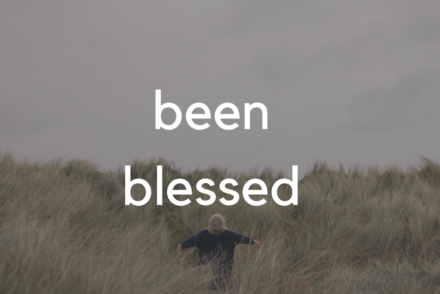The internet has both distanced us and brought us closer to what’s taking place around the world. We have almost invasive awareness of news that even fifty years ago would have barely touched at the edges of our attention. At the same time we have exponentially increasing demands on our attention from thousands of trivial things from Vine compilations of the cutest kittens meeting puppies for the first time (who has time to compile these things anyways?) to a myriad of mobile games (Hearthstone, anyone?) to twenty articles that say the exact same thing about Starbucks cups and Donald Trump.
What’s your response?
The constant barrage of world news isn’t a bad thing. The question is, what do we do with it? When the news of dozens killed or wounded in Brussels flows through our feed, accompanied by strident reminders that Brussels isn’t the only event of its kind in the last week, how should we respond? When heart-tugging photos of Syrian refugees fill the screen, along with opinions about whether they should be allowed here or there or anywhere else, what should we do?
With the massive amount of information at our fingertips our default has become calloused minimal interest. Glance, absorb, and move on. Read, comment, forget. Such cool evaluation and response is dangerous for the soul and raises the ire of the God who created the human beings that we so quickly pass over.
Listen to God’s words to the elite of Israel in their comfort and ease, casually absorbing the news of tragedy around them and moving on:
Woe to you who are complacent in Zion,
and to you who feel secure on Mount Samaria,
you notable men of the foremost nation,
to whom the people of Israel come!
Go to Kalneh and look at it;
go from there to great Hamath,
and then go down to Gath in Philistia.
Are they better off than your two kingdoms?
Is their land larger than yours?
You put off the day of disaster
and bring near a reign of terror.
You lie on beds adorned with ivory
and lounge on your couches.
You dine on choice lambs
and fattened calves.
You strum away on your harps like David
and improvise on musical instruments.
You drink wine by the bowlful
and use the finest lotions,
but you do not grieve over the ruin of Joseph.
Therefore you will be among the first to go into exile;
your feasting and lounging will end.
– Amos 6
“Woe to you who are complacent…to you who feel secure.”
If I’m honest with myself, that’s me. If I look around at the people I spend most of my time with here in Fargo, that’s us. We’re safe and secure. Terrorists wouldn’t target little ol’ Fargo, right? Tsunami’s won’t happen here. Earthquakes are incredibly unlikely. Racial tensions aren’t in danger of flaring up. Our worries are generally something along the lines of whether it will be really cold this winter (it will) and if our car will start if it does get really cold (it might not). In our security we embrace complacency and slowly, silently our souls are crushed.
“You lie on beds adorned with ivory…You strum away on your harps”
Here we are, sitting on our plush couches watching Netflix, simultaneously flipping through our favorite social media outlet’s feed. Here we are, enjoying song after song via Spotify and eating at any of the dozens of restaurants within a ten minute drive from our home. Lounging, eating, and singing while the world around us explodes, is shot, sleeps on the roadside, is unjustly detained, and begs for food.
“Go to Kalneh and look at it”
God’s words for those who sit in comfort, blissfully and intentionally ignorant of the pain around them are not gentle. “You will be among the first to go into exile; your feasting and lounging will end.”
Clearly we are not the audience these words where originally spoken to. They shouldn’t be taken as a promise that if we don’t act God’s going to put America in a situation similar to Syria. They do, however, give us significant insight into God’s desire for his people, reinforced by the example of Jesus and the way he refused to shy back from the pain of the world.
The wisdom of suffering
We need to refuse to turn our faces aside; refuse to scroll past too quickly or simply assume things will get better. Solomon, in his God-given wisdom, wrote in Ecclesiastes 7,
It is better to go to a house of mourning
than to go to a house of feasting,
for death is the destiny of everyone;
the living should take this to heart.
Frustration is better than laughter,
because a sad face is good for the heart.
The heart of the wise is in the house of mourning,
but the heart of fools is in the house of pleasure.
Don’t block out the pains of this earth. In a world where entertainment combines with a deluge of information to callous our hearts, we must intentionally engage our emotions when we are exposed to the hardships around us. Rather than moving on so quickly we must slow down and leverage the tools God has given us to empathize with those who are hurting.
Here’s a couple quick, easy ways to start doing so;
- Use your imagination and put yourself in the refugee’s or African American’s shoes before you post an opinion on what should be done.
- “Go to Kalneh” by reading background information on the countries or about institutional racism so you know at least some of the story.
- Skip the latest Walking Dead episode or the newest superhero movie and instead read a novel that tells the story of someone who’s gone through hardship.
- Get off your couch, shut off your music, and go meet some real people who are hurting. Volunteer at a homeless shelter for an hour or two. Befriend some refugees. Have an honest conversation about racism with your African-American friends.
Let your heart be moved
If we are to be full followers of Christ then, like him, we must refuse to avoid the hard things of this world. We can’t avoid the pain. We need to learn to engage our emotions fully and respond with compassion. Most of us aren’t able to physically go to Belgium or Syia or Pakistan, and most of us don’t have the connections to make on-the-ground changes in those places of pain, but we can all refuse to lounge, eat, and Facebook while the world burns.
Instead we must turn our prayer, passion, and action to be more in line with the heart of our great God who calls his people to be ambassadors of his kingdom to everywhere that there is brokenness and hurt.





No Comments